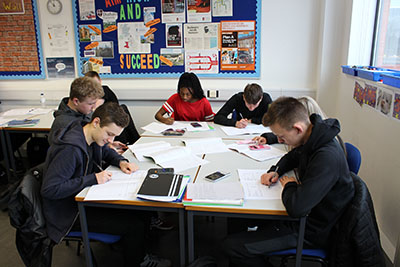The Accounting course helps students understand the responsibilities of the accountant and the impacts of their recommendations on the business and wider environment. It equips students with the necessary knowledge and skills to be able to assess the performance of all types of business organisations. You will learn about the main accounting records like ledgers, income statements and statements of financial position as well as accounting for sole traders, partnerships and limited companies.
Studying Accounting helps develop your knowledge and understanding of key concepts, principles and techniques that you can apply to real life scenarios, developing the ability to solve problems logically, analyse data methodically, make reasoned choices and communicate effectively. Obviously students do have to have good numerical skills but it is equally important that students have good written skills as many of the examination questions test the ability to analyse data but write up a report or essay style answer.


